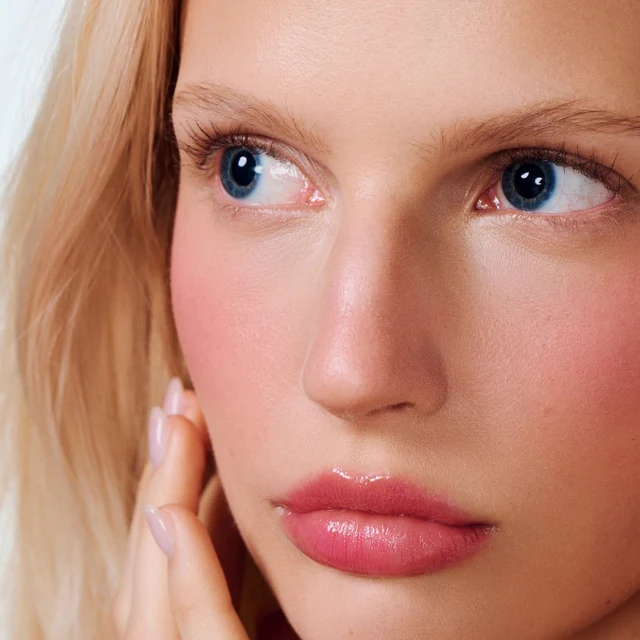
In a world of plastics, fillers, and wild filters, there’s always room for a new treatment that makes the skin look fuller, tighter, and brighter, while regenerating at a deeper level.
Enter ‘PRP Rejuvenation’, a couple of words you’re likely to hear a lot of over the next few years.
The non-surgical treatment involves injecting platelet-rich plasma (PRP) into the face and encourage the skin to heal on a cellular level, rather than just a surface one.
Credited with improving skin elasticity, texture, tone, reducing fine lines, and generally making the skin look healthier, the process is fast becoming one of the more popular options for those looking for a plumper, more natural, look.
As the old saying goes; less is more.
Registered Nurse Beth Walsh from The Skin Club says that the difference between filler and PRP is that one masks a problem… and one solves it.
Where regular filler (hyaluronic acid dermal filler) is injected to fill volume, PRP addresses the cause of skin’s deterioration at the root, stimulating skin cells and fibroblasts to create collagen and elastin. Over time, this results in smoother and plumper skin that is, in fact, “entirely natural.”

“Filler does nothing for the skin’s health,” says Beth. “It does not address the damage that is caused by age, but simply masks the problem by plumping it with an artificial substance. The skin continues to deteriorate as a result of age, sun damage and environmental factors.
“If we think of our skin as being similar to a mattress, the collagen provides the padding and the elastin is similar to the springs. We start off as babies with a thick luxury hotel quality mattress, which overtime shrinks to more of a camping rollout bed. The padding thins out, and the springs lose their bounce. The skin loses its volume, becomes less elastic, and starts to sag. The once-thick mattress becomes deflated and less supportive.
“It’s like hiring a team to rebuild the mattress from the inside out – repairing and regenerating at a cellular level for results that are both natural and long-lasting.”
PRP is included in so-called ‘vampire facials’ – treatments that are often accompanied by photos of women wincing, covered in blood, and generally looking a bit uncomfortable. The treatment was made popular by none other than Kim Kardashian back in 2013, but to regular gals like us, it always seemed a bit more ‘ow’ rather than ‘wow.’
Beth says that a lot of people are terrified of the ‘vampire facial’ because of the sheer amount of blood they imagine. In fact, there are a lot of misconceptions around the treatment… and its imagery.

“Photos like these are often shared to create a buzz around the treatment – it horrifies people, but it also gets them talking about it. In reality, the treatment is a lot less sensational,” says Beth. “When collected properly, PRP should be straw-like in colour – almost a liquid gold.
“All of the red blood cells are removed because they can be inflammatory and we want to promote healing instead. This is then used to help the micro-needling device glide along the surface of the skin as the needles penetrate it creating dozens of tiny pinhead sized micro channels in the skin – the PRP then seeps down into these micro channels that been created by the microneedling.”
At the end of the treatment, there will be redness, swelling, and possibly some pinpoint bleeding – but never blood dripping from the face. If this happens, Beth says the treatment has gone too far.
So, what does PRP Rejuvenation feel like? While it won’t leave you feeling as serene as a regular facial, Beth promises that it is definitely tolerable. “Before the procedure starts numbing cream is placed on the skin. This typically takes away most of the sensation,” she says.
“Getting PRP feels like little pinches on the skin. It can have a funny ‘fizzing’ sensation when placed around the eyes. Typically people get 3-6 treatments, spaced one month apart, and after having had the first treatment most people find the treatment very comfortable as they know what to expect.”
While a lot of the results of PRP are similar to those achieved by fillers and botox, the skin’s thickness is rebuilt from the inside, so there is no fear of looking “frozen” or over-filled.
The end result promises a plumpness that boasts vitality and a new glow, so the next time you’re considering a quick fix, why not consider a rejuvenation instead?
For more information visit www.theskinclub.ie or email beth@theskinclub.ie









